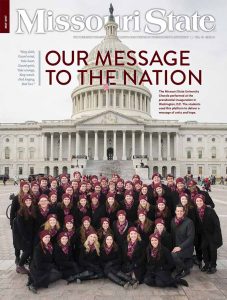
Imagine you’ve never been to Liechtenstein.
You don’t speak the language. You’ve never sampled the food. You aren’t familiar with the culture or the customs. You don’t know anyone who has been there.
And you’re moving there, by yourself, as a teen or young adult.
Would you be apprehensive? Wouldn’t you want someone to answer your questions, offer expertise or be a source of help as you make the transition?
Arriving at Missouri State may not be the same thing as arriving in a new country. But for first-generation students — those who are the first in their families to ever attend college — the experience of university life can be just as confusing, frustrating, exciting and overwhelming as starting a new life somewhere else.
If these students leave college without a degree, they won’t earn a college-level job. They now have debt and limited ability to pay it off.
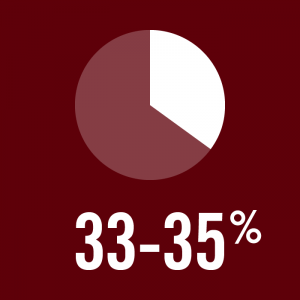

Supporting these students relates to our overall mission of developing a fully educated, ethical community. If this university recruits them, we are obligated to put them on a path to success.
Some Missouri State alumni, several of whom were themselves first-generation, are among faculty and staff members leading our efforts in recruiting, advising, teaching and retaining our first-gen students.
“The more welcoming we are, the better”
Nora Cox, ’03 and ’05, started college at another school in the early 1980s.
“I was completely unprepared for university-level work. I made all the classic mistakes of a first-generation student.” She overscheduled classes and underestimated the time it would take to do projects.
Bottom line: She flunked out.
She took other paths to success, working part-time jobs while raising a family.
In the early 2000s, she began to notice what she called “weird pressure” from herself: “I had this feeling that I really need to finish my college degree before my children finish theirs.”
She enrolled at Missouri State, where she earned a bachelor’s degree in communication with a high GPA. She kept going, earning a master’s in communication.
“I’ve had the experience of being a really terrible student, and then being, frankly, a really excellent student.”
That experience helps her on the job now. She has worked at Missouri State since 2009, and is an advisor as well as an instructor; she has won university and national advising awards.
“First-gen students really do need to talk with people who have been through this,” Cox said. “The more welcoming we are, the better.”
She’s not the only staff or faculty member who can identify with these students.
“A lot of my colleagues on this campus are first-generation — these are people who now have master’s and PhDs,” she said.
“This conversation about first-gens has sparked more awareness on campus. People have said, ‘well, that’s me, too, that was my experience.’ I think that can be really good for students to see.”
“Together, we fill in the gaps”
Dr. Tracey Glaessgen, ’97, ’02 and ’05, is one of Cox’s colleagues with the first-gen experience. She started at a community college and transferred to MSU.
“It’s very easy for me to understand our first-generation students. Together, we fill in the gaps for knowledge they don’t have.”
She now has four degrees — a bachelor’s and two master’s from MSU, and a doctorate from another institution.
She brought that experience to MSU when she started working here in 2006 as an advisor and instructor. She specialized in working with undeclared majors, and, like Cox, won university and national awards for advising.
Since 2014, she has led a special section of GEP 101 — the university’s general education first-year seminar course — dedicated to first-gen students who are undecided on a major.
A sense of empowerment
In fall 2016, senior Demetria Green stood in front of about 25 first-gen freshmen to introduce a guest speaker from Trio, federal programs that help Americans overcome class and social barriers to higher education.
“Trio really had a huge effect on my college life,” she told the students.
Green, a first-gen student from Kansas City, Missouri, was serving as a peer leader for Dr. Kelly Wood’s first-gen-only GEP course.
“This class gives them the feeling that ‘we’re all in this together, you can do it’ — it’s a sense of empowerment. This is not to hold their hands. It’s to take into account real differences and give them an extra push.”
When she started at MSU, she remembers feeling overwhelmed.
“I would call my mom crying because I was not getting adjusted,” Green said. “She could give me support and calm me down, but not give me any ‘how-to’ info.”
That type of info is exactly what MSU now puts front and center. In 2014, the university started a few sections of GEP 101 just for first-gen students.
“At orientation, advisors talked to incoming first-gens and said, ‘we’ve got these special sections, and we’d like you to be in one of them,’” Wood said. “For the most part, they did.”
These sections had more focus on building “cultural capital” — the knowledge and skills to adapt to the university.
Learning ‘Bear speak’
“College is its own little subculture, with strange terminology and vocabulary,” Wood said. “Then, they don’t have a family member who can say, ‘Hey, when you go to college, here’s some things you need to be prepared for.’ Once they’re here, every experience is completely new from the ground up.”
They may not know what a registrar’s or bursar’s office is, for example. In their GEP courses, students now have a chance to learn this “Bear speak.”
They might be introduced to deans and professors, learning about Missouri State’s academic structure. They might hear from student panels. They learn about offices and resources: Where to find a tutor. Where to apply for aid. Where to ask about a campus job. Where to go to get help with a résumé.
From first-gen students to alumni
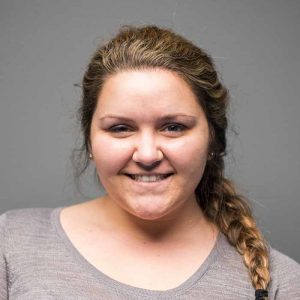
“To first-gen alumni, congratulations! Earning a college degree is such an accomplishment, and I can’t wait to walk across that stage one day soon as well. You all have been role models for younger first-generation students and it’s helpful to be able to hear stories from some of you about what college was like for you and your personal struggles.”
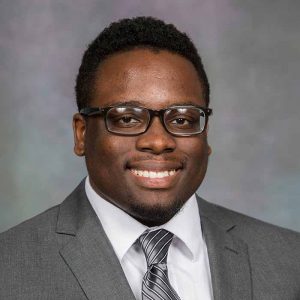
“College was overwhelming at first. But MSU does such a good job of getting freshmen to events, or telling them about different organizations, that was easy for me to get involved. In 2016 I was a peer leader, serving as a liaison between the teacher and the students in a GEP class with several students who were first-generation. The most rewarding thing was seeing students grow. They’re in a shell at first, and then as the semester progresses, they start to talk more and express their opinions.”
First-gen GEP by the numbers
These first-gen GEP sections seem to be working.

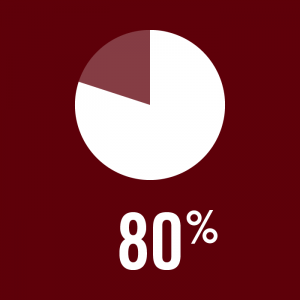
“We feel like what we’re doing is working for them. If anything, it’s being much more intentional and conscious in interacting with these students,” Wood said.
MSU is offering more first-gen sections this fall.
“We had 11 sections in fall 2016, and we’re looking to have upwards of 18 in fall 2017, which would potentially have all first-gen students in dedicated sections of GEP. That’s the goal.”
There are other initiatives for first-gens on campus as well, including residence-hall programming, workshops offered by financial aid and MSU: I’m First, a student organization formed in 2015.
Wood is considering steps to take in the future, such as peer mentoring between students and targeted training for advisors.
“We have been thinking about how these students enhance the experience of Missouri State,” Wood said. “I see many strengths they bring to campus. They have a lot of determination and grit. They are trailblazers. I think now they really feel like, ‘the school is paying attention to me and my needs.’”
Offer internships or jobs
If you’re an employer or recruiter, you may tell students about internships, part-time jobs and full-time jobs by posting on JobTracks, a system offered by Missouri State’s Career Center.
Why being a first-generation student can be challenging
In 2014, first-generation students both around the U.S. and at MSU were 12 to 15 percent less likely to return to college for a second year, according to numbers from Dr. Kelly Wood, provost fellow for student success. Here are some reasons why the experience may be different for these students, all or most of which Missouri State is hoping to address with courses, programs, organizations or other targeted resources.
Tight finances
“More than half of our first-gen students are eligible for Pell Grants,” Wood said, which are federal grants awarded based on financial need. This group also tends to work more hours off-campus.
Unknown financial aid opportunities
In the first-gen GEP courses, “we do workshops in a computer lab, and I have them fill out the FAFSA (Free Application for Federal Student Aid) then and there,” Wood said. “We talk about other pockets of money they can access. I want to make sure they are not taking on more debt than they need to.”
Disconnected from university life
They have traditionally been more likely to commute, more likely to live off campus and less likely to be engaged in student organizations, making them less tied to university life. “As an undergrad, I was working full-time,” said alumna Dr. Tracey Glaessgen, assistant director of first-year programs. “My path was not the clean-cut, in-and-out in four years. I had a semester or so where I did not go to school, because I had to save up the money. My focus was on paying for school and concentrating on grades. There was not an emphasis on ‘get involved.’”
Family issues
They are more likely to deal with family issues, such as serving as a caretaker for a relative.
Homesickness
That’s a common college problem, but for these students “it’s a shift in how they’re approaching it,” Wood said. “They want to talk to parents and family members often, but talking with folks at home can make it seem like they want to go home even more. Some, but definitely not all, may even get subtle messages such as, ‘this is really expensive,’ ‘I didn’t go to college and I’m just fine’ and ‘shouldn’t you be with your family?’”
Unaware of available services
They may not know about or use services that are either for free or are covered by student fees, including academic tutoring, social activities and health and wellness programming. “They may have less of an attitude that, ‘campus is here for me,’” Wood said.
Are you an educator? Attend our first-gen conference
Missouri State will be hosting “Sustaining first-generation students: Missouri State’s campus-wide commitment,” a new, one-day conference centered around first-gen issues. We invite faculty, staff and advisors from schools around the state of Missouri to attend. The cost is $65 to attend.
When: 8 a.m.-4 p.m. Oct. 6
Where: Plaster Student Union on Missouri State’s Springfield campus


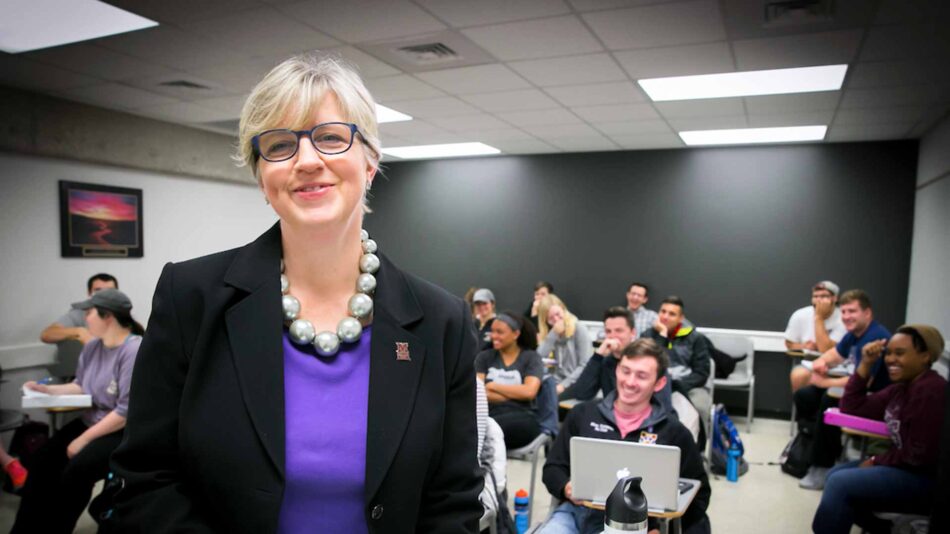
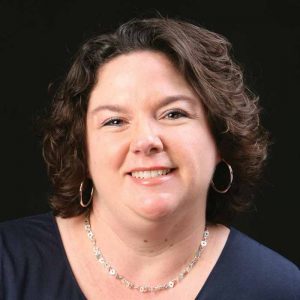
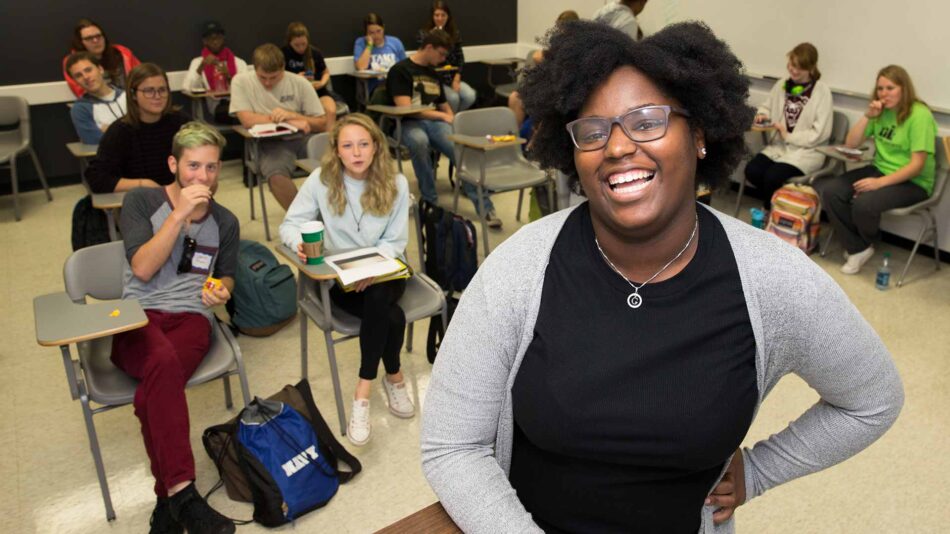
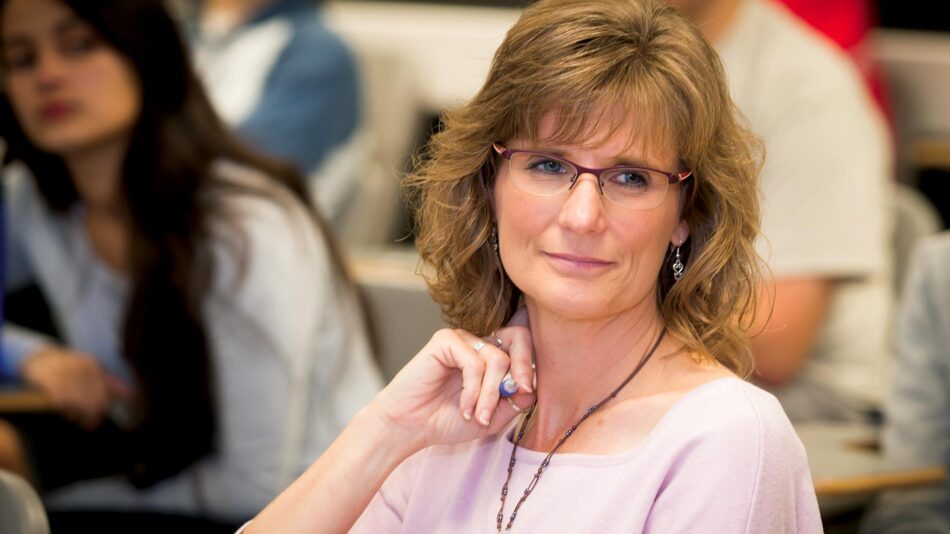
Leave a Reply